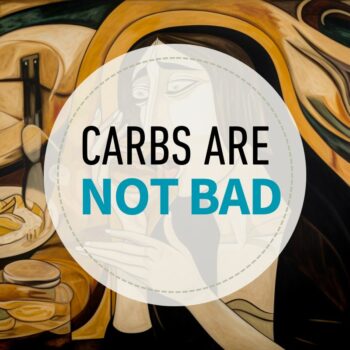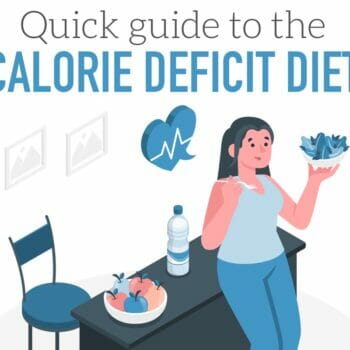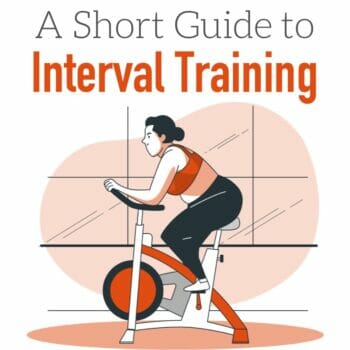Benefits of Hiring a Nutrition Coach to Reach Your Fitness Goals
Hiring a nutrition coach can be a great way of making sure your eating is steering you towards your fitness goals and not pulling you further away.
With a myriad of weight loss methods being marketed on every corner, it can be very confusing for many people and often these well-marketed methods produce results, but at the price of your overall good health, both physically and mentally.
A certified nutrition coach helps people cut through the dieting BS and teaches them how to nourish their bodies in a way that promotes health and vitality.
Here are some reasons to hire a coach instead of trying to figure it out all by yourself.
10 Benefits Nutritional Coaching Has to Offer
1. Personalized Nutrition
Many diet plans just give the dieter generic eating plans that don’t consider a person’s unique stats, exercise, and lifestyle factors. Or, they simply tell people to abstain from eating certain macro groups in order to inadvertently cut calories. The problem with this haphazard approach is that it never teaches a person how to eat in a way that’s right for his/her body and specific goals or eat in a way that is realistic in our modern society. A nutritional coach builds the program around you so everything is formulated for you the individual instead of a one size fits all approach.
2. Program Adjustments
A coach will be able to adjust things for the client as their body changes or as their goals change. A good nutritional coach monitors a client’s progress and makes program changes based on the solid data collected from the client. Changes are systematic and precise opposed to the guessing game packaged diets offer.
3. Accountability
Accountability is one of the cornerstones of success and a coach holds the client accountable to following the prescribed plan he/she has designed for them. A coach will design a program that has a method of accountability that is clearly outlined so the client knows what to expect and when accountability checkpoints will take place.
4. Meal Planning
A certified nutritional coach will be able to assist the client in formulating healthy meal plans that not only meet their nutritional needs but also fuel their workouts properly. A good coach knows that less is not always best so they teach clients that a meal plan that promotes starvation isn’t a viable option for long-term success.

5. Encouragement
Everyone struggles and has days in which they don’t feel motivated or are even tempted to give up. A coach is there to support and encourage on those days and will help clients mentally get over those bumps in the road. A nutritional coach will help the client keep focused on the big picture and remind them of their past successes.
6. Progress Monitoring
It can be challenging for clients to keep track of their progress or to know which stats are the most important to track. A coach organizes a client’s progress data and keeps track of change over time. They also know which indicators are the most accurate for measuring the client’s progress based on their individual goals. The scale isn’t always a good measure and the coach knows when to use it and when not to.
7. Nutritional Expertise
The world of nutrition is a confusing place. There are so many myths and so much false information circulating around the internet regarding what and what not to eat. A nutritional coach bases his/her advice on scientific research as opposed to what is trendy or in diet pop culture. A coach understands how the body processes the food you eat and how energy is obtained from those foods. He/she can help clients gain a better relationship with food by exposing nutritional myths and leading them towards more balanced eating.
8. Education
A good nutritional coach isn’t just a coach but also a teacher. Teaching the client about good nutrition is one of the primary goals of coaching. A coach doesn’t expect a client to need help forever, but to eventually gain enough knowledge that they can be successful on their own. Education is powerful and liberating and a good coach seeks to empower their clients.
9. Eating for Exercise
A nutrition coach has the ability to evaluate a client’s exercise plan and then recommend an eating strategy that is best for fueling that type of exercise. Some types of exercise may require more protein than others while some may require more carbohydrate intake and furthermore, some types of training may require some supplementation to ensure the client is keeping the proper electrolyte balance within their body.
10. Doesn’t Treat Illness
A good nutritional coach understands that it is beyond their scope of practice to diagnose or treat any medical condition or illness. They know when to refer clients to a doctor for additional testing or know when to make sure the client get medical clearance from their doctor before beginning a new eating plan.

What to Look for in a Nutrition Coach
- Certification: A nutrition coach should be certified by a respected professional organization. This means they have completed a course and the issuing organization has confidence that they have the expertise to help clients nutritionally.
- Experience: A good coach has a track record of experience helping others. While book knowledge is important, practical experience goes a long way since there are some things books can’t teach.
- Communication: A nutrition coach is an effective communicator and understands that communication is important to the success of their clients. A good coach clearly outlines how and when they can be contacted.
- Cost: Nutritional coaching is a professional service, so clients need to understand that there is a fee for the expertise the coach is providing. Fee’s vary greatly depending on the degree of service, but generally, expect to pay between $100-$300 for two months of online coaching and at least double for in-person nutritional coaching.
- Sets a Good Example: An effective nutritional coach practices what they preach. A coach should lead by example by practicing good nutritional habits themselves and by being in shape fitness-wise. A good coach doesn’t have to be a fitness model nor does being a fitness model automatically qualify a person to dispense nutritional advice. However, in the same sense just like a person wouldn’t go to a plumber to have their car fixed, people shouldn’t trust someone who is out of shape and overweight to have their nutrition fixed.
Not everyone can be successful on their own and it’s ok to ask for help. A nutritional coach is a great resource to call on when the weight won’t budge or the fitness goals don’t seem attainable.


 Top 15 Healthy Carb, Protein, and Fat Rich Foods
Top 15 Healthy Carb, Protein, and Fat Rich Foods Carbs are Not Bad – and Will Not Prevent Weight Loss
Carbs are Not Bad – and Will Not Prevent Weight Loss Calorie Deficit Diet
Calorie Deficit Diet A Short Guide To High-Intensity Interval Training (HIIT)
A Short Guide To High-Intensity Interval Training (HIIT) What Causes Water Weight, Water Retention, and Weight Fluctuation?
What Causes Water Weight, Water Retention, and Weight Fluctuation?